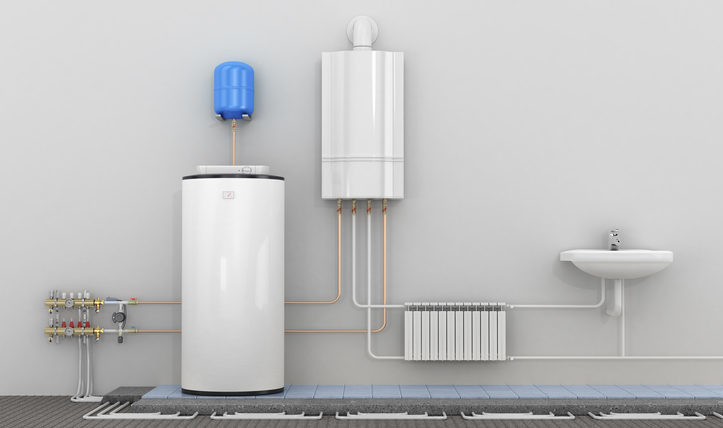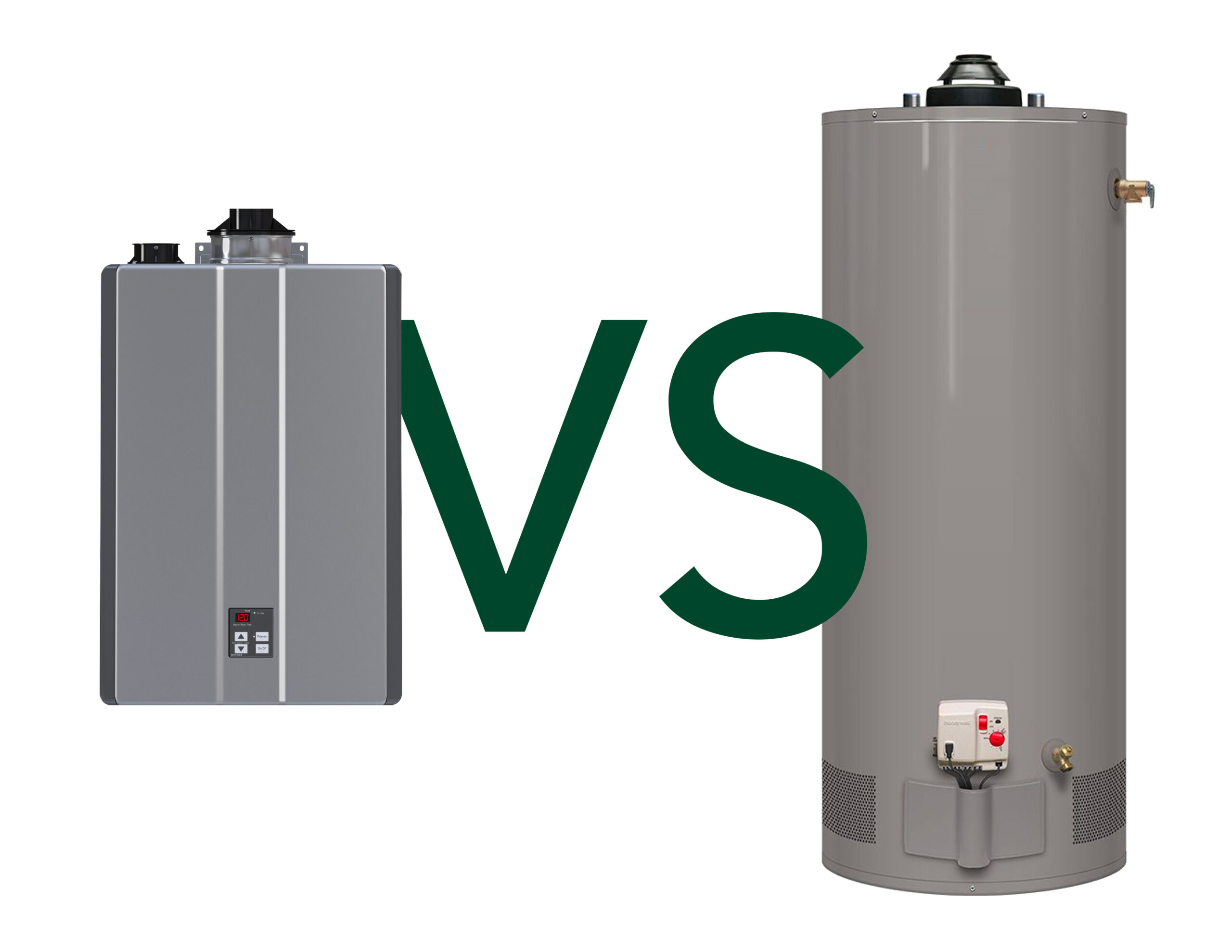Contrasting Tankless vs Traditional Tank Water Heaters
Wiki Article
The Ultimate Guide to Choosing the Right Hot Water Heater: Debunking Tankless and Tank Options for Pipes Success
Are you having a hard time to pick the ideal water heating unit for your plumbing needs? In this ultimate overview, we will certainly debunk the alternatives of tankless and container water heating systems, helping you make a notified decision (Tankless vs. Traditional Tank Water Heaters).Tankless Vs. Storage Tank: Comprehending the Basics
Tankless water heating units, also recognized as on-demand water heating units, supply warm water as required, without the usage of a storage tank. On the various other hand, tank water heaters store and warm a particular quantity of water in a container, all set for use whenever required.One trick advantage of tankless water heating units is their space-saving style. Furthermore, tankless water heaters are a lot more energy-efficient than conventional container heaters because they just heat water when it is needed.
Nonetheless, tankless water heaters might have limitations in regards to the amount of warm water they can give concurrently. If you have a huge home with multiple warm water needs, such as running a shower and dishwasher at the same time, a tankless device might battle to maintain. In this case, a container water heater with its bigger storage space capability might be a far better alternative.
Inevitably, the selection between tankless and tank water heating units relies on your details demands and preferences. Tankless vs. Traditional Tank Water Heaters. Take into consideration aspects such as room schedule, warm water needs, and energy efficiency to make an informed choice
Energy Efficiency: Contrasting Tankless and Tank Options
To establish which water heater option is more power efficient, contrast the power usage of tankless and tank water heating systems. Tankless water heating systems, likewise understood as on-demand water heaters, provide hot water only when it is required. It is important to note that the power effectiveness of both tankless and container water heaters can differ depending on elements such as the size of the unit, the amount of hot water required, and the climate in which you live.Expense Considerations: Evaluating the Initial Financial Investment and Long-Term Financial Savings
To analyze the initial investment and long-lasting financial savings of various water heating unit options, consider the price factors associated with both tankless and storage tank water heaters. When it comes to the initial investment, tankless water heating systems tend to have a greater upfront expense compared to tank water heaters.Nonetheless, when looking at long-term savings, tankless water heating units frequently come out on top. Additionally, tankless devices have a longer life expectancy compared to tank water heating units, which suggests less replacements and upkeep prices in the long run.
It is essential to keep in mind that the cost factors to consider will certainly differ depending on aspects such as the size of your family, warm water use, and neighborhood power prices. It is suggested to speak with an expert plumbing technician to figure out one of the most cost-effective choice for your specific requirements and budget.

Room Requirements: Evaluating the Size and Setup Variables
When it comes to room, tankless water heating systems are typically more portable than traditional container water heating systems. As an outcome, tankless water heating units can be mounted on wall surfaces, check that inside cupboards, or in other limited rooms, making them an excellent choice for those with minimal space in their homes.On the other article hand, container water heating units require a significant quantity of area to suit the dimension of the tank. The dimension of the container relies on the capability of the water heating system, which is measured in gallons. Typically, container hot water heater range in size from 20 to 80 gallons. It's crucial to consider the available area in your home when choosing a tank water heating system to ensure it can be properly mounted.
In addition to the physical space needs, you should likewise think about the setup factors. Tankless water heating systems may need alterations to your pipes system, such as updating the gas line or including extra electric circuits. Container water heaters, on the various other hand, may require a larger space for setup and may need added ventilation to avoid overheating.
Performance and Upkeep: Analyzing Longevity and Service Needs
When it comes to efficiency and maintenance, it is important to analyze the sturdiness and service requirements of both tankless and tank water heaters. These systems have a longer life expectancy compared to conventional tank water heaters, which generally last around 10-15 years.In regards to service needs, tankless hot water heater require much less upkeep compared to storage tank water heaters. Tankless units don't have a tank, which suggests there is no danger of tank leakage or corrosion. They additionally do not require regular flushing like container hot water heater do. It is still important to arrange yearly upkeep for tankless water heating units to make certain optimum performance and prevent any type of potential problems. This maintenance generally entails descaling the warmth exchanger and inspecting for any type of signs of wear or damages.
On the various other hand, storage tank water heating systems require more maintenance. Routine evaluation and maintenance are important to keep tank water heaters running smoothly and to avoid any costly fixings or substitutes.
Conclusion

Tankless water heating units, also recognized as on-demand water heating units, offer warm water as required, without the use of a storage tank. In addition, tankless water heaters are extra energy-efficient than standard storage tank heaters since they just warmth water when it is required.To determine which water heating unit option is extra power effective, compare the power usage of tankless and tank water heaters. Tankless water heating units, likewise understood as on-demand water heaters, provide hot water only when it is required. When it comes to the initial investment, tankless water heaters often tend to have a greater ahead of time cost compared to storage tank water heating systems.
Report this wiki page